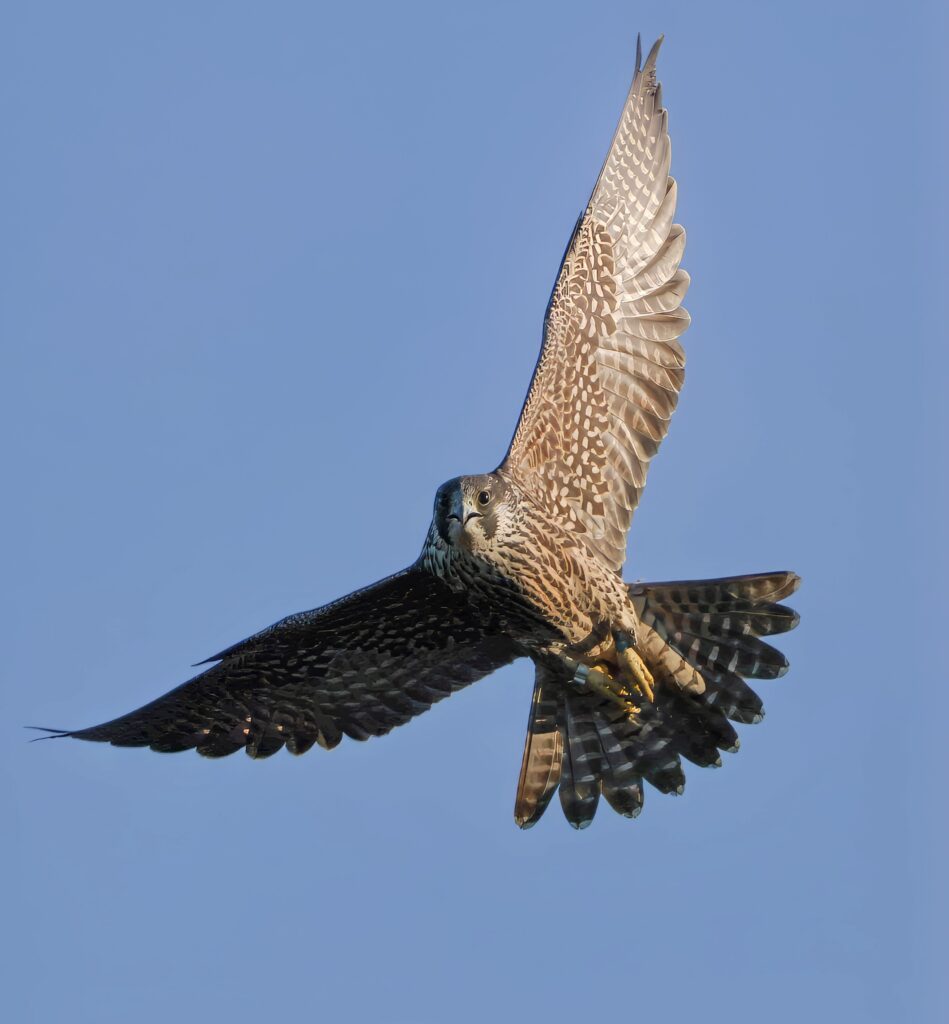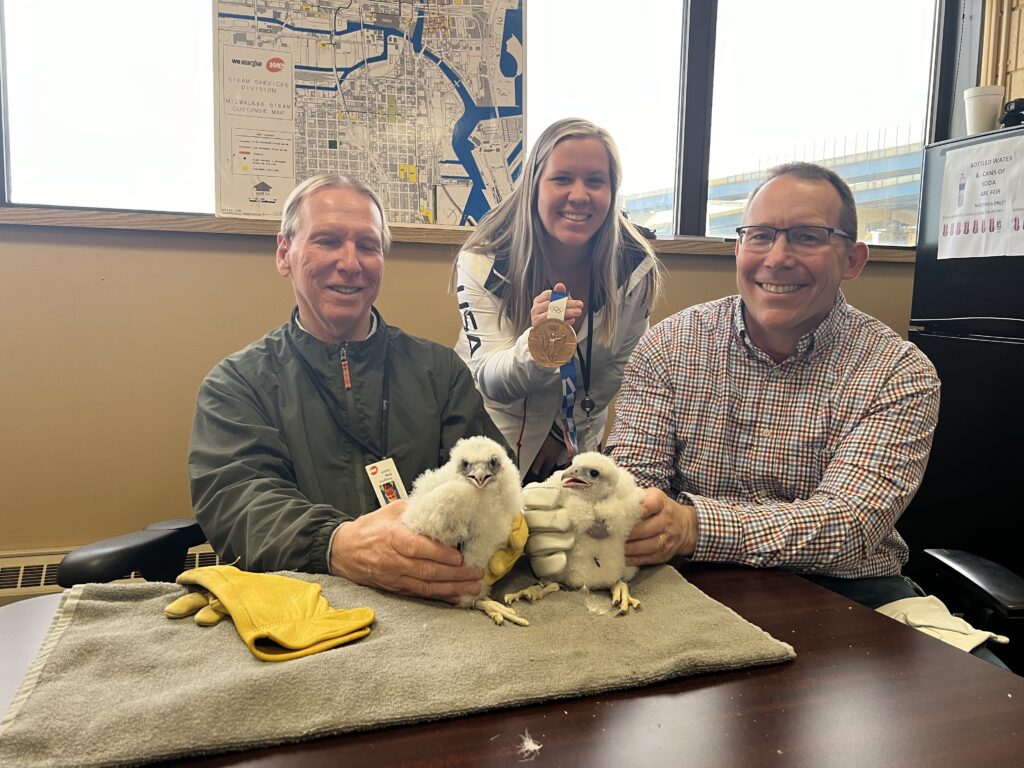Olympic bronze medalist trap shooter and Wisconsin native Madelynn Bernau takes aim at clay pigeons, but her namesake prefers the real thing. “Trapper” the peregrine falcon was recently spotted in the wild for the first time.
Trapper was born at the We Energies Valley Power Plant nest box earlier this year and left the nest in June. After a peregrine falcon leaves the nest, sightings in the wild are rare.
“It is so incredible to see him maturing and thriving as a juvenile in his natural habitat,” Bernau said.

Birder Braden Ribbens took this photo in early September of Trapper mid-flight in Sheboygan Falls. Perhaps he was trying to trap a pigeon or other prey for lunch. The picture was shared with peregrine falcon manager Greg Septon.
Septon was able to identify Trapper thanks to the band he placed on his leg. The combination of colors, letters and numbers on the tags helps identify all falcons born at Wisconsin Public Service (WPS) and We Energies power plants.

“I remember the day he was banded, I had the honor of choosing between a male or female peregrine falcon to be named in honor of my Olympic sport. I ultimately decided on a male in hopes that we would see him again, as males on average tend to stick closer to their birthplace than females. Glad to say my wish came true, and I want to thank the birder for capturing the incredible photos and reaching out to Greg with the photos!” Bernau said. “I wish him safe travels to wherever he may fly, and I hope he sticks around Wisconsin to help create more peregrine falcons for years to come.”
New nesting season report
Trapper was one of nine chicks born during another highly successful nesting season for WPS and We Energies. All of this year’s chicks were named after Wisconsin Olympic medalists. The details are laid out in the newly released 2024 Peregrine Falcon Nesting Season Report.
A total of 453 peregrine falcons have been born at WPS and We Energies power plants since the program began in 1992. That means 20% of all peregrine falcons born in Wisconsin during that time hatched at WPS or We Energies facilities, helping the endangered species escape possible extinction.
Coming soon
The countdown is on to the arrival of a new group of chicks. Watch for updates this spring as WPS and We Energies continue helping peregrine falcons nest and raise their young at power plants across Wisconsin.
The peregrine falcon program is just one way WPS and We Energies are building a bright, sustainable future. From helping endangered animals and restoring natural habitats, to building new solar facilities and reducing carbon emissions, we are committed to a cleaner future.
